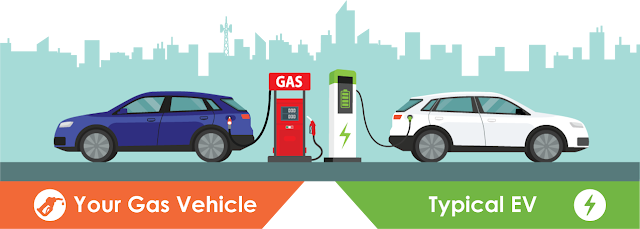The automotive industry has undergone a significant transformation in recent years, with the rise of new Electric Cars challenging the dominance of traditional internal combustion engine (ICE) cars. This shift towards electric mobility has sparked debates regarding the advantages and disadvantages of electric cars compared to their conventional counterparts. In this article, we will delve into the key differences between electric cars and traditional cars, exploring their environmental impact, performance, cost, and infrastructure requirements.
Environmental Impact
One of the most compelling reasons to embrace electric vehicles is their positive environmental impact. Electric cars produce zero tailpipe emissions, reducing greenhouse gas emissions and air pollution. On the other hand, traditional cars burn fossil fuels, releasing carbon dioxide and other harmful pollutants into the atmosphere. Electric vehicles contribute significantly to reducing our dependence on fossil fuels, making them a key element in combating climate change and improving air quality in urban areas.
Performance and Efficiency
Electric vehicles have made tremendous strides in terms of performance and efficiency. Electric motors deliver instant torque, providing quick acceleration and a smooth driving experience. In contrast, traditional cars rely on combustion engines, which require time to reach peak performance. Furthermore, electric cars have a simpler drivetrain, resulting in lower maintenance requirements, fewer moving parts, and reduced risk of mechanical failures. Additionally, regenerative braking systems in EVs enable the recovery of energy during deceleration, further enhancing their efficiency.
Range and Charging Infrastructure
Range anxiety, the fear of running out of battery power, has been a major concern for potential EV owners. However, technological advancements in battery technology have significantly improved the range of electric vehicles. Many modern electric cars can now travel over 200 miles on a single charge, and rapid charging stations are becoming more prevalent, making long-distance travel more feasible. Although traditional cars offer the convenience of refueling at gas stations, the increasing deployment of public and private charging infrastructure is gradually eliminating the limitations associated with electric vehicle charging.
Cost Considerations
Historically, the high upfront cost of electric vehicles has been a barrier to their widespread adoption. However, declining battery costs, government incentives, and economies of scale have led to a reduction in the price of electric cars. Additionally, the lower operating costs of EVs, including savings on fuel and maintenance, can offset the initial investment over the vehicle's lifetime. Traditional cars, while often cheaper to purchase initially, incur higher fuel and maintenance costs.
Infrastructure Challenges
While electric vehicle charging infrastructure has been rapidly expanding, it still faces challenges in terms of accessibility and availability in some areas. Establishing a comprehensive charging network remains a priority to alleviate concerns about limited charging options. In contrast, traditional cars benefit from an extensive network of gas stations, making refueling more convenient. However, it's worth noting that the development of charging infrastructure is gaining momentum, with governments and private companies investing heavily in expanding electric vehicle charging networks.
Conclusion
The shift towards electric vehicles represents a significant milestone in the pursuit of sustainable transportation. E cars offer several advantages over traditional vehicles, including lower emissions, improved performance, and reduced operating costs. While concerns about range, charging infrastructure, and upfront costs remain, the ongoing advancements in battery technology and charging infrastructure are rapidly addressing these challenges. As governments, automakers, and consumers continue to embrace electric mobility, we can expect a future where electric cars become the norm, leading to cleaner, greener, and more efficient transportation systems.
Visit also: Electric Car Refuses to Start?

Comments
Post a Comment